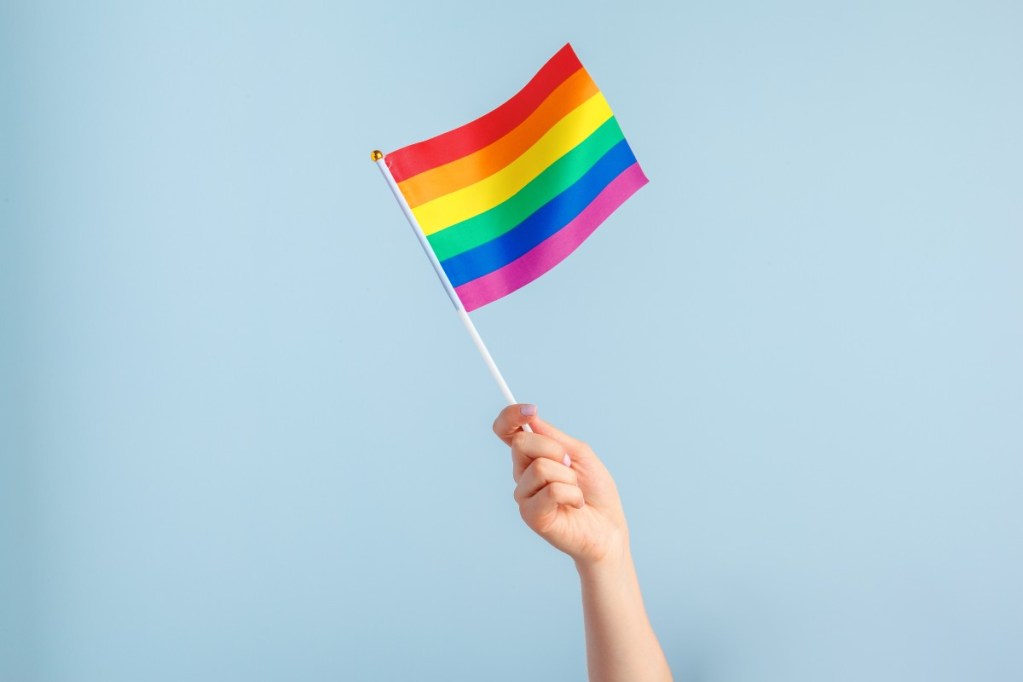So your teenager has come out to you. Hopefully, you’ve been having open discussions about this topic for years and your child knows they can come to you about anything. Regardless of your past talks, it’s crucial to show your child all of the love and care they need and deserve. It is time to buck up and be the supportive parent you know you can be — and the ultimate advocate.
Of course, this may be uncharted territory for you, and you might not be sure how to react, how to help, what to say, and what to completely avoid. In this vein, many parents find themselves treading lightly or biting their tongues. But your vulnerable teen needs you more than ever — so here is what you need to keep in mind at this critical juncture of time.

Approach with empathy and understanding
Your child is dealing with a lot right now, so make sure you’re helping, not hurting. Dr. Vijayeta Sinh, clinical psychologist and founder of TherapycouchNYC, said to approach the situation with “wholehearted acceptance” and to make sure “kids feel seen, heard, and loved regardless of their sexual beliefs and values.”
Annie M. Henderson, a certified professional life coach specializing as a coming-out coach, emphasized to NewFolks that some caregivers may need to turn over a new leaf. “As a parent, realize that your child has been cataloging in their heart and memory times where you have made comments about gay people that are good or bad, and any [related] religious conversations…made by you or the church you attend,” she said.
“If in the past or recent future, you are aware that you may have come across as unsupportive … it is not too late to do some research and start having better, more encouraging conversations that make your teen feel safe,” Henderson added.

Keep communicating
One conversation is not going to cut it. You need to keep the lines of communication perpetually open — because, as Henderson pointed out, “showing your support for your teen is an ongoing act.” And FYI, this goes for all kids across the board!
You want your child to know that they can always come to you with any problems and when seeking guidance — even if you won’t always have the right answers. You are a sounding board and a non-judgmental, listening ear.

Join support groups
If you are having trouble adjusting to your child’s revelation, take the negativity elsewhere. LGBTQ teens need love and acceptance, not concern or pessimism. “If you are in need of your own support, reach out to a life coach, a parents’ group, or someone who has been where you are now, [and is] where you want to be mentally, emotionally, and spiritually,” suggested Henderson.
You can also find a therapist or counselor for your child if they are struggling. “It may be helpful to seek counseling for the child, so they can have access to a validating, supportive person and talk about their life, experiences, and goals,” said Dr. Sinh. Family therapy is another helpful option.

Show your pride
Some teens are more outgoing than others. If your child is open and emboldened, embrace their confidence, and show your pride right alongside them. Henderson suggests letting your child lead the way: “One teen might be on board for their parents to buy some Pride merchandise and attend a function together, while another teen just needs words of encouragement and to know that you have their back. This is where talking to your teen and asking them what they prefer would be best.”

What not to do
You want to do and say the right things. You may make mistakes along the way (we all do! it’s par for the parenting course), and that’s okay. But try to avoid shaming or breaking your child’s trust.
“Do not out your kid, meaning tell others, until they have given you permission to do so. Again, each individual’s process is different, and nothing is wrong with taking their time if they are not ready,” Henderson advised.
Moreover, actively shield your child from inquiring minds with negative attitudes. Yes, they’ll have to face these harsh realities in real life, but for now, you can help buffer the brutality.
“There will always be that nosy aunt or neighbor who has an opinion about your child’s style of clothes or the length or color of their hair. Parents must and should help their kids find the language to hold boundaries with such people,” advised Dr. Sinh.
It is so important to show your LGBTQ teen support. Coming out can be a really positive experience — or a very negative one. You want to make sure that your unwavering love and acceptance set the tone for this milestone. It is true that you won’t always know exactly what to say or do — but keep in mind that no parent is perfect. Your child just wants to know that they can depend on you and that you will be there for them no matter what. Showing up and being a committed presence is the best thing you can do — you’ll figure out the rest along the way.


